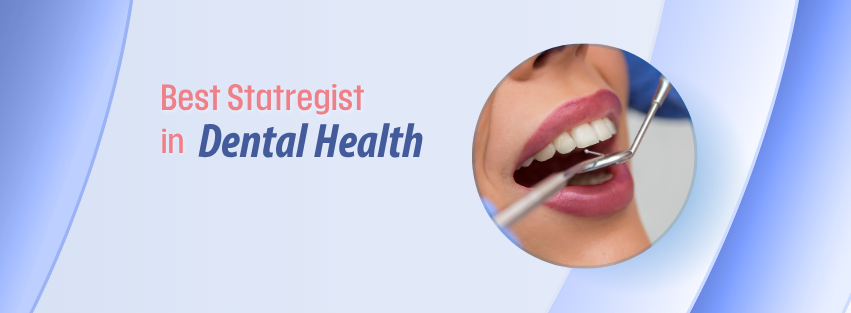
The Link between fast Food and tooth decay: Understanding the Science
Fast food is a significant part of many people’s diets. It’s convenient, tasty, and often cheaper than healthier options. However, many people ask: does fast food cause tooth decay?
To answer this question, we need to understand the connection between what we eat and the health of our teeth.
Your mouth is home to bacteria, some of which are harmful. When you consume sugar, particularly from fast food, these bacteria thrive. They feed on the sugar, producing acids as a byproduct. These acids can erode tooth enamel, leading to cavities and other dental issues.
Fast food often contains high levels of sugar, especially in sodas, desserts, and sauces, which can significantly contribute to tooth decay.
Here are some common ingredients in fast food that can lead to tooth decay:
- Sugary Beverages: Soft drinks and sweetened teas typically contain high sugar levels. A single serving can have as much as 40 grams of sugar, which increases the risk of cavities.
- Processed Carbohydrates: Foods like fries, bread, and tortillas break down into sugars in your mouth. This breakdown feeds harmful bacteria, making it harder to maintain healthy teeth.
- High Levels of Acid: Many fast food items, especially pickles and sauces, are high in acid. This can wear down enamel over time, making teeth more susceptible to decay.
- Sticky Foods: Items like sugary desserts and candies can stick to your teeth. This prolongs sugar exposure, allowing bacteria to produce acids for a more extended period.
The frequency of fast-food consumption also plays a critical role. If you indulge in fast food regularly, the risk of tooth decay increases. The more exposure your teeth have to sugar and acid, the more damage can occur. This doesn’t mean you have to eliminate fast food entirely, but moderation is essential.
To help mitigate the risk of tooth decay while occasionally enjoying fast food, consider these tips:
- Stay Hydrated: Drink water after consuming fast food to wash away sugar and acids that linger on your teeth.
- Choose Wisely: Opt for menu items that are lower in sugar and acid. For example, grilled chicken sandwiches are often a better choice than fried ones.
- Practice Good Oral Hygiene: Brush your teeth twice a day and floss daily. This will help remove food particles and plaque that may lead to tooth decay.
- Limit Snacking: If you often snack on fast food, try to limit these habits. Frequent snacking means constant sugar exposure for your teeth.
Understanding the science behind tooth decay and fast food can help you make more informed choices. It’s essential not only to consider the taste and convenience of fast food but also how it impacts your oral health. Small changes in how often and what types of fast food you consume can make a difference.
Common ingredients in fast food that harm your teeth:
Fast food has become a staple in many people’s diets due to its convenience and taste. However, what you may not realize is how certain common ingredients in fast food can affect your dental health. Understanding these ingredients is key to maintaining your pearly whites and preventing tooth decay.
One major ingredient in many fast food items is sugar. Sugar is a significant contributor to tooth decay, which occurs when bacteria in your mouth digest sugar and release acids. This acid can erode tooth enamel, leading to cavities. Fast food chains often use sugar in their sauces, sodas, and desserts. A single meal can contain several sources of sugar, making it easy to exceed the recommended daily intake. Here are some common fast food items that are usually packed with sugar:
- Sauces, such as ketchup and barbecue sauce
- Sugary beverages like soft drinks and sweetened teas
- Desserts, including milkshakes, cookies, and ice creams
Highly acidic foods are another area of concern. Items like pickles or certain dressings can have a pH level that harms your teeth. Acidic foods can soften tooth enamel, which makes your teeth more vulnerable to decay. Fast food items that often contain high levels of acidity include:
- Pickles in burgers and wraps
- Citrus-flavored drinks
- Vinaigrettes used in salads
Next, consider refined carbohydrates. Foods such as white bread, buns, and fried items are often found in fast food. These refined carbs can break down into sugar and feed the bacteria in your mouth, leading to tooth decay. When you consume a burger or a sandwich made with white bread, the remnants can cling to your teeth and promote plaque build-up. Here are some fast food options high in refined carbs:
- White bread buns from burgers
- Chicken nuggets made from processed grains
- French fries, which are often fried in oil
Another common ingredient to watch out for is artificial additives. Many fast food items contain preservatives and artificial flavors, which can be harmful to your overall health, including your dental health. Some preservatives can disrupt the natural balance of bacteria in your mouth, leading to an increase in harmful bacteria. Typical fast food items that may contain these additives include:
- Process cheese found in cheeseburgers
- Pre-packaged snacks and chips
- Some soft drinks with multiple additives.
Don’t overlook the impact of texture. Crunchy foods, such as chips or fried foods, can create small particles that get stuck between your teeth. If not cleaned properly, these residues can lead to plaque formation and ultimately tooth decay.
Fast food is often designed to be “grab-and-go,” but failing to brush your teeth afterward can leave harmful substances lingering.
Understanding what’s in your fast food is crucial for making informed dietary choices. Not every fast-food item is equally harmful, but being mindful of common ingredients can significantly help in maintaining your dental health.
If you find yourself indulging in fast food, remember to follow these tips to protect your teeth:
- Drink water instead of sugary beverages.
- Opt for grilled items rather than fried ones.
- Choose items with less sugar, like salads without sweet dressings.
- Maintain good oral hygiene by brushing and flossing regularly.
- Visit your dentist regularly for check-ups and cleanings.
Being aware of the common ingredients in fast food that can harm your teeth is the first step to preventing tooth decay. The next time you visit a fast food restaurant, think twice about what you’re ordering, and remember that your oral health is worth the effort of making smarter choices.
Preventive measures: How to enjoy fast food without sacrificing dental health?
Fast food is a convenient option for many of us, but it often comes with a cautionary tale about its effects on dental health. If you love indulging in quick meals but are concerned about how they might impact your teeth, you’re not alone.
Many people are looking for ways to enjoy fast food without compromising their dental health. So, how can you savor your favorite treats while keeping your smile bright?
First, it’s essential to understand why certain fast food items pose a risk for tooth decay. Many fast food choices are high in sugars and acids, which can lead to plaque formation and the erosion of tooth enamel. Here are some preventive measures you can take:
- Choose Wisely: Opt for items with less sugar. For instance, instead of a sugary soda, consider water or unsweetened tea. Foods like grilled chicken sandwiches or salads can be better than fried items or those with heavy sauces.
- Rinse After Eating: If you can’t brush your teeth right after a meal, rinsing your mouth with water can help wash away some of the food particles and sugars that can cause decay.
- Practice Portion Control: Eating smaller amounts can help minimize the impact on your teeth. Enjoy a smaller size of your favorite burger or a smaller serving of fries.
- Limit Snack Frequency: If you’re eating fast food, try to save it for one meal rather than snacking on it throughout the day. Frequent exposure to sugars can increase the risk of cavities.
- Pair with Healthy Options: When ordering, try to incorporate fruits or vegetables. A side salad can complement fries, and certain sandwiches can come with lettuce, tomato, or pickles.
Furthermore, timing is crucial when it comes to consuming fast food. If you pair your meals with regular dental hygiene practices, you can lower the chances of tooth decay. Follow these tips:

- Brush Twice Daily: Make sure to brush your teeth for at least two minutes, twice a day, with fluoride toothpaste. This practice helps to remove plaque and protect against decay.
- Floss Daily: Flossing helps to eliminate food particles stuck between your teeth where your toothbrush can’t reach. This is especially important after consuming sticky or sugary foods.
- Visit the Dentist Regularly: Regular check-ups can catch any potential problems early. Your dentist can offer personalized advice tailored to your diet and habits.
Not all fast food is created equal. Some menus have made strides to provide healthier choices that can be friendlier for your teeth. For example, look for:
- Grilled Options: Grilled chicken or fish sandwiches typically have less fat and fewer harmful ingredients than their fried counterparts.
- Whole Grains: Some places offer whole grain buns that are better for your health and can be less damaging to your teeth.
- Dessert Alternatives: Instead of cookies or ice cream, consider a fruit cup or yogurt for dessert. They are generally lower in sugar and provide essential nutrients.
Remember, balance is key. It’s not about completely eliminating fast food from your life but making smarter choices when you do indulge. You can savor your favorites while taking care of your dental health.
The role of sugars in fast food and its impact on oral hygiene:
Fast food is a popular choice for many because it’s quick and tasty. However, what you might not realize is how much sugar is often added to these foods and how this can impact your oral hygiene. Understanding this connection can help you make better choices for your teeth and gums.
In fast food, sugar is frequently hidden in many items you would not expect, even in savory dishes. Here are some common sources of sugar in fast food:
- Burgers and sandwiches: Some sauces and toppings can contain a surprising amount of sugar.
- Soft drinks: Many fast food meals come with sugary sodas that can significantly increase your sugar intake.
- Desserts: Cookies, ice creams, and pies are often loaded with sugar.
- Condiments: Ketchup, barbecue sauce, and other condiments can have high sugar levels as well.
When you consume sugar, it doesn’t just disappear after a snack. Instead, sugar interacts with bacteria in your mouth, leading to acid production. This acid can erode tooth enamel, the protective layer of your teeth. When enamel wears away, it makes your teeth more susceptible to cavities and decay. This is a crucial point for anyone who enjoys fast food regularly.
Drinking sugary beverages, such as sodas and sweetened iced teas, can also exacerbate oral hygiene issues. As you sip on these drinks, sugar sticks to your teeth, giving bacteria more fuel to create harmful acids. The more you indulge in sugary fast food, the more you are putting your teeth at risk.
Here are some tips to minimize the impact of sugar from fast food on your oral health:
- Opt for water or unsweetened beverages: Choosing water or unsweetened drinks instead of sugary sodas can greatly reduce your sugar intake.
- Check the nutrition labels: Look for items that have lower sugar content. This is especially important if you are ordering sauces or desserts.
- Rinse your mouth: After eating fast food, rinse your mouth with water to help wash away sugar and acids.
- Brush your teeth: Brushing your teeth twice a day with fluoride toothpaste can help protect your enamel from sugar damage.
- Limit frequency: Reducing how often you eat fast food can significantly help your overall dental health.
It’s not just sugar that can be harmful; the acidity found in many fast food items can also pose a risk to your teeth. Acidic foods and drinks can wear down enamel, compounding the effects of sugar. When considering your choices, pay attention to both sugar and acidity as you decide what to eat.
Some may wonder if there are healthier options at fast food restaurants. Many places now offer salads, fruit, and other lower-sugar items. While these meals perhaps do not pack the same punch of flavor as their traditional counterparts, they are a better option for your oral hygiene. Restaurants are becoming more aware of health concerns and often provide full nutritional information to help customers choose wisely.
Navigating fast food choices: Healthier alternatives for your teeth.
When you find yourself craving fast food, it’s essential to think about your teeth along with your taste buds. Many fast foods are loaded with sugars and acids that can lead to tooth decay. However, navigating the fast food landscape doesn’t mean sacrificing your oral health. Here are some healthier alternatives you can consider to keep your smile shining bright.
Swapping sugary drinks:
Sugary beverages like sodas can be a major culprit behind tooth decay. Instead of opting for these drinks, consider these healthier choices:
- Water: Always the best option for hydration and dental health.
- Unsweetened iced tea: A flavor boost without the sugars.
- Sparkling water: If you crave fizz, choose sparkling water without added sugars.
By selecting these beverages, you reduce the exposure of your teeth to harmful sugars and acids. Remember, staying hydrated with water also helps to rinse away food particles and keep your mouth feeling fresh.
Choosing the right meal:
Fast food menus can be overwhelming, but recognizing healthier meal options is vital. Aim for items that are lower in sugar and have more nutrients. Here’s what you might look for:
- Grilled over fried: Grilled chicken sandwiches or wraps contain less fat and can be more filling.
- Salads: Choose salads with a variety of veggies and lean proteins, but watch the dressings, as they can be high in sugar.
- Whole grain options: If available, opt for whole grain breads that can give you more fiber and nutrients.
These options not only contribute less to your dental woes but provide lasting energy and nourishment to your body.
Mind the sides:
Sides can significantly impact your overall meal healthiness. Rather than fries, pick one of these alternatives:
- Fruit cups: Fresh fruit is a natural source of vitamins and minerals that are good for your health.
- Vegetable sticks: Crunchy veggies serve as a great snack option without extra calories.
- Side salad: A small salad can add valuable nutrients without the added sugars.
Replacing fries with these options minimizes the negative effects on your teeth and takes you one step closer to a healthier meal.
Be cautious with sauces and condiments:
Many sauces and condiments contain high levels of sugar and acidity. Here’s how to make smarter choices:
- Limit ketchup: If you love ketchup, consider using it sparingly as it can have significant sugar content.
- Opt for mustard: Mustard is typically lower in sugar and can add a nice flavor kick.
- Use salsa: Fresh salsa can be a zesty, low-sugar alternative for dips and dressings.
By paying close attention to your sauce choices, you can protect your teeth from the harms of excess sugar and acidity.
Finishing on a high note:
After your meal, you might think about dessert. While a sweet treat is tempting, making thoughtful choices can save your teeth from damage:
- Opt for yogurt: If available, choose low-sugar yogurt topped with fresh fruit.
- Dark chocolate: A small piece of dark chocolate can satisfy your sweet tooth and is often lower in sugar.
- Fruit-based desserts: Go for options like fruit tarts or sorbet that are more natural and less processed.
This not only helps maintain your oral health but also satisfies your craving for something sweet.
Conclusions:
Fast food can indeed have a significant impact on your dental health, largely due to its common ingredients, particularly sugars and acids. These components create a perfect environment for dental decay, as they contribute to the formation of plaque and cavities. However, understanding the relationship between fast food and tooth decay empowers you to make more informed choices.
